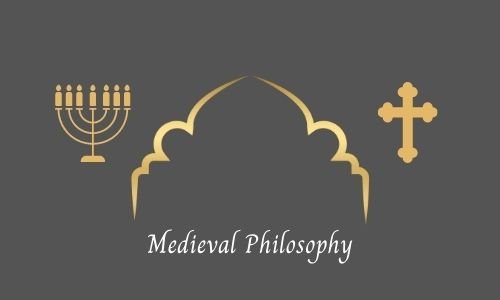Philo of Alexandria
Ibn Hazm : The Andalusian Philosopher and Scholar
Ibn Hazm (994–1064 CE) was a brilliant Andalusian philosopher, theologian, jurist, and polymath whose intellectual legacy has made a significant impact on both Islamic and Western thought.
Known for his unflinching dedication to rationalism and a deep understanding of Islamic jurisprudence and ethics, Ibn Hazm is one of the most influential scholars to come from the intellectual melting pot of al-Andalus (medieval Islamic Spain).
His contributions spanned numerous disciplines, from theology and philosophy to literature and grammar.
Table of Contents
(1) Early Life and Education
Ibn Hazm was born in Córdoba, Spain, in 994 CE during a time of great intellectual and political turmoil.
The Iberian Peninsula was home to a vibrant blend of cultures, with Muslims, Christians, and Jews living side by side. It was within this cosmopolitan atmosphere that Ibn Hazm’s education flourished.
Coming from a prominent family, Ibn Hazm was well-placed to receive a high-quality education.
His family was involved in the governance and administration of Córdoba, a city that was one of the leading centers of learning in the Islamic world at the time.
This gave Ibn Hazm access to a wide range of intellectual resources. He was raised in an environment where learning and scholarship were deeply valued, and his early education encompassed classical Islamic sciences, including fiqh (jurisprudence), hadith (sayings of the Prophet), literature, grammar, and theology.
Ibn Hazm was not just a product of his family’s influence. He actively sought knowledge from the greatest scholars of his time.
Arabic poetry, logic, and rhetoric were some of his key intellectual interests, and he studied them with renowned teachers.
His education was wide-ranging, and his reading of classical Greek and Roman texts, as well as the Quran and Hadith, shaped his unique philosophical and theological outlook.
(2) Early Travels and Intellectual Development
Ibn Hazm’s intellectual journey was not confined to Córdoba alone. He traveled widely across al-Andalus and beyond, engaging with scholars and absorbing the intellectual currents of the time.
One of the most important features of his travels was his engagement with other schools of thought, especially the Maliki and Hanafi schools of Islamic law.
His travels allowed him to refine his own views on jurisprudence, theology, and philosophy.
He also spent time in the court of Seville, which was home to another intellectual hub.
However, Ibn Hazm’s travels were not just scholarly in nature—they were also deeply political. As a member of the Zanata tribe, he was involved in the complex political landscape of al-Andalus during a period of instability.
His experiences in the courts of different rulers gave him firsthand insight into the turbulent nature of politics during this period.
(3) Ibn Hazm’s Philosophy and Theological Views
Ibn Hazm’s philosophy was deeply influenced by his background in Islamic jurisprudence (fiqh) and his experiences as a political actor.
His philosophical work can be broadly categorized into ethical and theological domains, though he was also a critical figure in literature, especially through his works on poetry and rhetoric.
(i) Rationalism and Fideism
One of Ibn Hazm’s most significant contributions to Islamic philosophy was his advocacy for rationalism, though with a twist.
While many thinkers of his time sought to reconcile reason with faith, Ibn Hazm argued for the supremacy of religious truth over human reason.
This position can be characterized as fideism: a belief that faith should be the guiding principle in religious matters, and that human reason must submit to the teachings of the Quran and Hadith.
In his works, particularly “Al-Fisal fi al-Milal wa al-Ahwa’ wa al-Nihal”, Ibn Hazm systematically addressed the theological debates of his time, including issues of divine justice, the nature of the soul, and the afterlife.
His approach often placed him in opposition to other theological schools, such as the Mu’tazilites (rationalists) and Ash’aris (mystical thinkers), with whom he disagreed on the role of reason in understanding divine matters.
(ii) Critique of the Ash’ari School
Ibn Hazm is best known for his rigorous critique of the Ash’ari school of theology.
While the Ash’ari school posited that reason alone could not understand God’s nature, Ibn Hazm took a more empiricist approach to religious knowledge.
He argued that direct knowledge of the divine could be achieved through faith and reason and that the traditional methods of interpreting Islamic doctrines needed to be revisited to ensure a purer understanding of God’s will.
This confrontation with Ash’ari theology extended to his views on free will and human responsibility.
Ibn Hazm rejected the Ash’ari determinism that placed all actions under God’s will, maintaining that humans are responsible for their choices.
This position would later resonate in broader theological debates, particularly with later philosophers who engaged with free will and determinism.
(iii) Ethical Thought and Jurisprudence
Ibn Hazm’s influence on Islamic ethics was as profound as his theological views.
He developed a distinctive approach to Islamic jurisprudence that emphasized the primacy of the Quran and Hadith as sources of law, rather than relying heavily on analogical reasoning (qiyas) or consensus (ijma) as other jurists did.
Ibn Hazm’s emphasis on the literal texts and rejection of excessive reliance on juridical consensus set him apart as a reformist figure in Islamic legal theory.
He is also well known for his moral writings, including his famous treatise “Tafsir al-Kabir”, where he examined the ethical behavior of Muslim communities and stressed the importance of personal morality in Islamic society.
(iv) Islamic Poetry and Literature
In addition to his theological and philosophical contributions, Ibn Hazm was also a passionate literary figure.
His work in Arabic poetry is considered to be some of the finest of the Andalusian period, with his famous treatise “Tawq al-Hamama” (The Ring of the Dove) being a major work on love and romance.
This work explores love from a philosophical, psychological, and spiritual perspective, addressing topics such as the nature of affection, desire, and the spiritual journey.
(4) Influence and Impact
Ibn Hazm’s philosophical, theological, and ethical ideas had a profound influence, particularly in the Islamic West, where his views on jurisprudence and theology were adopted and expanded upon by later thinkers.
His critique of the Ash’ari school and his empiricist approach to understanding divine knowledge had a lasting impact on subsequent Islamic philosophers and theologians.
Ibn Hazm’s rationalism and emphasis on reason also set the stage for later Islamic rationalists and philosophers, such as Averroes (Ibn Rushd), who would further develop his ideas.
In particular, his rejection of the determinism of Ash’ari thought influenced later Muslim debates on free will.
In literature, Ibn Hazm’s Tawq al-Hamama continues to be a significant text in the study of Arabic poetry and Andalusian culture, offering insight into both philosophical ideas and emotional expression.
His contributions to Islamic thought and culture have continued to resonate in both the Islamic world and beyond.
Ibn Hazm’s rigorous ethical framework, his insistence on faith over reason, and his unique blend of literary creativity and intellectual rigor ensure that his work remains relevant even in contemporary philosophical and theological discussions.
(5) Conclusion
Ibn Hazm’s legacy stands as a towering intellectual achievement in medieval Islamic philosophy.
His contributions to theology, jurisprudence, ethics, and literature reflect a deeply analytical and rational mind that sought to defend faith while pushing the boundaries of reason. Ibn Hazm’s intellectual audacity to challenge established doctrines and his ability to balance empiricism with faith continues to make him a key figure in Islamic intellectual history, whose influence still resonates in modern philosophical and theological discussions.








